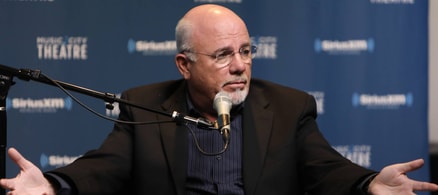Knowing the issues early
From naming beneficiaries to deciding whether or not to share a chequing account, there are numerous financial issues to discuss with your partner.
Discussing finances can get uncomfortable. Your relationship with money is complicated, and seeing how a partner handles their money can be upsetting to you. Discovering that your partner has debts can lead to deeper trust issues and financial worries.
“It would be great if everyone could enter the relationship with complete transparency,” says Kris Rossignoli, cross-border tax and financial planner with Cardinal Point Wealth Management.
He notes that a “pretty common issue early on in relationships is someone comes into the relationship with a bunch of debt, whether it's student loans, or a mortgage, or something that the other person has no idea about and then it becomes their joint debt.”
As you prepare to get remarried, be sure to sit with your partner and discuss your financial goals and ambitions. There’s no denying that money is an emotional subject. But having open and frank discussions about finances can save a lot of headaches in a relationship.
“You want to be extremely open to your new spouse,” says Rossignoli.
If you have debts that are holding back your financial growth — or you feel will impact your relationship — take the time to speak to your partner, as well as a financial advisor. You and your partner can find a path to eliminate the debt together, whether it’s through consolidation or another means.
This may mean delaying some financial goals, but being on the same page will only benefit your relationship going forward.
Maximize Your Tax Refund with TurboTax Canada!
Simplify tax season with this user-friendly software. Get step-by-step guidance, maximize deductions, and file with confidence. Trusted by millions, TurboTax Canada ensures accuracy and peace of mind. Start your taxes today and get the refund you deserve
Get the tax refund you deserveChildren
If you or your partner have children from a prior relationship, the financial conversation becomes even more critical.
As Rossignoli sees it, “the big topic is estate planning in any second marriage, especially if there's children.”
Rossignoli notes that “in the situation of a blended family, like a remarriage, your wishes become that much more important because you now have different parties that may have wishes that are different from one another and from you.”
Rossignoli comments that it’s critical to know “what you want your future life to look like. What are your long-term, joint financial goals?”
When considering your dependents, you want to ensure that they are provided for and that your partner is on board with your intentions.
“The last thing you want is for them to completely disagree or want to cut out your children from the will or from any supports,” observes Rossignoli.
Estate planning
One of the most important conversations you need to have with your partner is how you want your estate handled.
“Estate planning is kind of the primary focus on a secondary or subsequent marriage” observes Rossignoli.
Since there might be dependents from a previous relationship, not to mention various assets and liabilities, Rossignoli notes that you want to be “upfront and honest with that first up, and open, and [have] an advisor that can help you talk through those issues.”
Knowing where you and your partner stand will allow you to start the next chapter of your lives together in the most positive fashion that you can.
If you have a will or estate plan from a previous relationship, updating these documents is of critical importance. In Ontario, for example, Rossignoli points out that under the Estate Act, a new marriage will not override a pre-existing will.
“If your former will leaves everything to your former spouse, your current spouse and your kids won't be too happy about that.”
Estate planning allows for you and your spouse to provide clear direction about how you want your assets handled.
As Rossignoli states, the “importance of estate planning is to ensure that those wishes are formally and legally communicated.”
Grow Your Savings Effortlessly with Moka
Automate your savings with every purchase and watch your money multiply. Moka rounds up your transactions and invests the spare change. Start building wealth effortlessly today. Join thousands of Canadians embracing financial freedom with Moka
Sign up nowKey questions to ask
As Rossignoli points out, finances are “not the sexiest topic of discussion, ideally you are having an open, realistic dialogue before you decide to become married or common-law.”
With that in mind, here are some key questions Rossibgnoli feels every couple should ask:
What are your assets and liabilities?
a. Have you considered a prenuptial marriage agreement, and are there any assets that should be excluded from family property?
b. If we both own separate homes, where will we live, and what will we do with the extra home?
Do we have similar financial goals (eg. retirement, purchase a home or vacation property, pay down debt, etc), and can we agree on a plan to accomplish these?
a. What are our expected income and expenses?
b. Can we agree on a family budget and spending/saving priorities?
c. Will we have a joint bank account and credit card, or maintain these separately?
How much do we expect to spend on our wedding and honeymoon?
a. Do you have a financial advisor, tax accountant, and lawyer?
b. If so, you should let each know about your upcoming marriage so they can help advise.
Do either of you have children or other dependents?
a. How do you plan to address their financial interests while you are alive, and also if you become incapacitated or pass away?
Create a foundation for a strong marriage
Asking these questions of one-another will allow you to understand your financial expectations, paving the road to a healthy and prosperous financial future.
As you and your partner prepare to take the plunge into marriage, it’s essential to discuss financial matters candidly with one another. An open and honest approach to your finances may be uncomfortable at first, but it can save you and your family both personal and legal headaches.
Sponsored
Trade Smarter, Today
With CIBC Investor's Edge, kick-start your portfolio with 100 free trades and up to $4,500 cash back.







